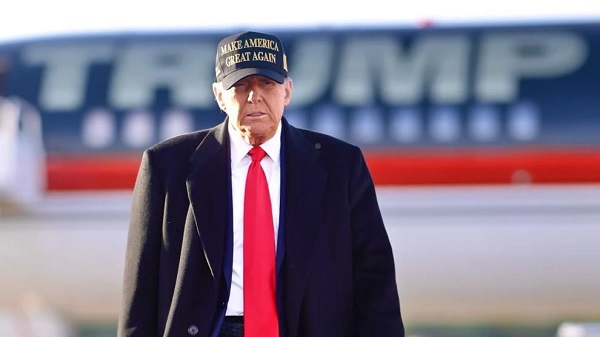From The Center Square
By Casey Harper
President-elect Donald Trump has pledged to drastically cut government and clean out inefficiencies, but he faces an entrenched power in Washington, D.C. that may throw a wrench in his plans: federal government public employee unions.
“For president-elect Trump to succeed at making the federal bureaucracy more efficient and accountable to the American people, he’ll have to once again do battle with federal unions,” Max Nelsen, a labor policy expert at the Freedom Foundation, told The Center Square.
Trump has tapped top businessmen Elon Musk and Vivek Ramaswamy to lead the new Department of Government Efficiency effort. Musk has claimed he can cut $2 trillion in federal spending.
In a November joint editorial in the Wall Street Journal, Musk and Ramaswamy pledged “mass head-count reductions” in the federal government.
Firing federal workers is notoriously rare and difficult, but Ramaswamy has publicly said that mass, indiscriminate firings may allow for circumventing the usual bureaucratic holdups for firing a federal employee.
Trump himself recently pledged to cut “hundreds of billions” in federal spending.
“Government unions are hands down the single most significant defenders of the administrative state,” Nelsen said. “Their interests are always served by bigger, more expensive, less accountable government, and their partisan allegiance to the radical Left leads them to both overtly and covertly undermine conservative policy changes across the federal government…”
The first battle with unions in the DOGE war may be federal work from home policies, where unions have already threatened legal action to protect their pre-arranged deals with the Biden administration.
Trump threatened to fire federal employees who are not willing to report to the office, a clear shot at federal work-from-home policies, something Musk has also blasted in recent weeks.
“If people don’t come back to work, come back into the office, they’re going to be dismissed,” Trump told reporters during a news conference at Mar-a-Lago.
The largest federal employee union quickly shot back after Trump made the comments and threatened legal action.
Trump’s comments are likely at least in part reacting to a Biden administration official negotiating a deal with a union that extends until 2029, after Trump is scheduled to leave office.
As The Center Square previously reported, Social Security Administrator Martin O’Malley negotiated a deal with union leaders to codify work-from-home policies, keeping telework in place for his 42,000 employees until 2029.
Everett Kelley, national president of the American Federation of Government Employees, the largest federal employee union, pointed out that these contracts are legally binding.
“Collective bargaining agreements entered into by the federal government are binding and enforceable under the law,” Kelley said. “We trust the incoming administration will abide by their obligations to honor lawful union contracts. If they fail to do so, we will be prepared to enforce our rights.”
Trump’s backers may have an ace in the hole, though, in the form of new Supreme Court precedent.
The U.S. Supreme Court ruled earlier this year in a landmark case to overturn Chevron deference, the longstanding legal practice of giving federal agencies broad power to interpret and practically change and expand federal laws as they deemed fit, citing their expertise.
Now, Musk and Ramaswamy will likely have more leeway in cutting rules from the books and workers from the payroll.
Nelsen said Trump should limit the amount of federal dollars that go toward unions, and that he should increase union transparency.
“Additionally, President Trump will need a cadre of energetic appointees at the Office of Personnel Management, the Federal Labor Relations Authority, and in labor relations departments government wide to aggressively implement his directives,” Nelsen said. “Finally, to truly have a long-term impact, President Trump will need a successor in four years committed to continuing the fight.”





















